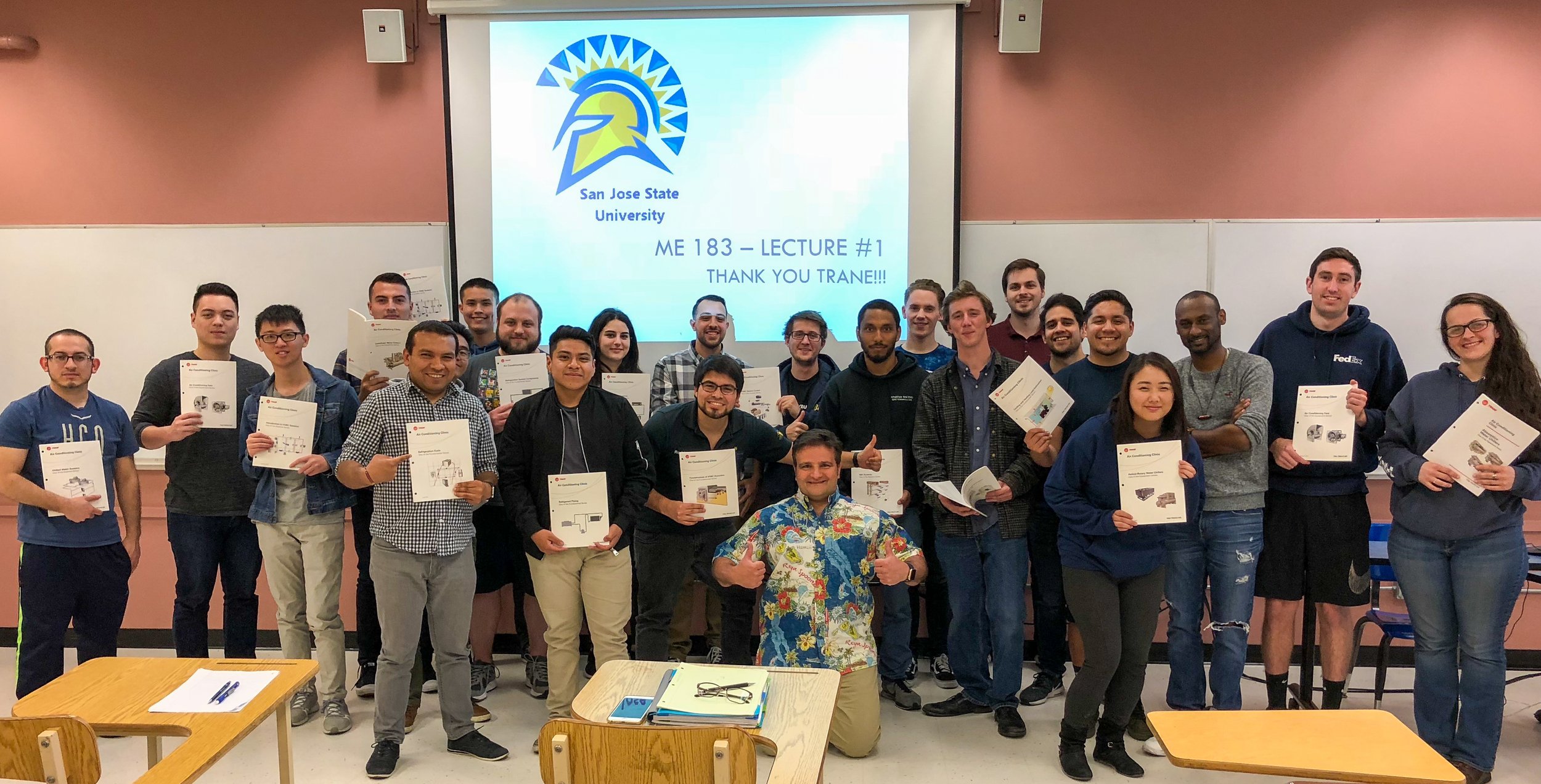
Courses for Engineers
Pragmatic Professional Engineers offers a variety of Continuing Education courses to help engineers stay up-to-date.
Basics of HVAC Systems
This course presents the major types of HVAC systems. Water-side, air-side, and direct-expansion systems are discussed along with common system water-side and air-side system configurations such as variable-volume, constant-temperature air systems and variable-primary water loops.
Commissioning Basics
Building Systems Commissioning is a growing industry within the building delivery scope of work. This course will define what commissioning is, describe how it's implemented, and discuss how LEED v4 and California Title 24 requirements for commissioning affect architects.
Atmospheric Boundary Layer Wind Tunnel Testing
This course presents the fundamental concepts of atmospheric boundary layer wind tunnel (ABLWT) testing and offers practical steps to architects on when to consider this kind of testing. The course opens with two examples of how wind tunnel testing can contribute to a building’s design and then moves on to explain the definitions and means/methods of testing. The course concludes with pragmatic directions on when to offer it and what alternatives there are.
Solar Thermal Cooling Case Study
This course introduces the concept of cooling a facility primarily by harnessing energy from the sun using solar thermal in lieu of photovoltaic technology. The introduction is in the format of a case study of the Crow Canyon Medical Center in San Ramon, California. The Crow Canyon Medical Center is one of the only functioning solar-thermal cooling systems in the world. When the solar resource is not sufficient for cooling or the facility doesn’t require cooling, the solar thermal energy is used to offset the comfort or domestic hot water heating loads. The system was installed as a supplement to a conventional system already existing in the building; therefore, the layout is applicable to many facilities across the country. The course presents an in depth look at the mechanical systems as well as a lessons learned portion. The course includes pragmatic directions on when to offer a system retrofit like this.
California Mechanical Code Update - Overview
This course reviews select changes in the California Mechanical Code (CMC) between the 2019 and 2022 versions that are of special note to mechanical engineers designing HVAC and hydronic systems. The presentation will point out where there are discrepancies between the CMC and the California Energy Code. The topics include:
Guards and Rails Clarifications
Residential Ventilation Airflow
Reducing Parking Garage Airflow
Air Registers in OSHPD Buildings
Exhaust Over a Public Walkway
Exhaust Duct Velocities
Pollution Control Units, Incinerators
Grease Duct Fire Sprinklers
Grease Duct Measurement System
Prohibition of Steel Wire Hangers
A2L Refrigerant – Lower Constraints
Copper Pipe Pressure Testing
Radiant Heating/Cooling Controls
Radiant Tubing Fasteners
Drilling/Tapping into Fuel Piping
California Plumbing Code Update - Overview
This course reviews select changes in the California Plumbing Code (CPC) between the 2019 and 2022 versions that are of special note to mechanical engineers designing HVAC and hydronic systems. The topics include:
Dead legs and flushing
Guards and rails
Backflow preventer components
Mandates for check valves
Relief valve discharge
Drinking water pump specifications
Elevated natural gas system pressures and piping
Drilling and tapping fuel gas lines
Authority who sets Health Care Risk categories
Nature of hazards clause
Central oxygen concentrator unit plant constraints
Category 1 health care facilities
Restrictions on medical air for human consumption
Restrictions on vacuum systems
Air and vacuum redundancy stipulations
Air and vacuum valve Cv
Miscellaneous medical gas stipulations
California Energy Code Update - Overview
This course reviews select changes in the California Energy Code between the 2019 and 2022 versions that are of special note to mechanical engineers designing HVAC and hydronic systems. The topics include:
Summary of important definitions
Equipment efficiency upgrades / new categories
Heating equipment baselines in performance models
High rise residential baselines in performance models
Filter bypass prevention
Acceptance testing – who can perform them
Occupied standby occupancy clarification
Ventilation testing and balancing
New airside economizing limits
Airside economizer carve-out for VRF systems
Duct sealing mandate
Duct testing mandate by HERS raters
Air compressor system criteria
Controls
Leak testing
Pipe sizing
Controlled Environment Horticulture (CEH) section
Computer Room section
Fan Energy Index (FEI) section
Single zone system energy model baselines
Fan power budgeting section
Large natural gas boiler section
Dedicated outdoor air system (DOAS) section
Exhaust heat recovery section
Computer room airside economizing changes
Computer room waterside economizing changes
Computer room aisle containment mandate
Focusing on your convenience, we will come to your office to offer our courses and provide lunches to all attendees.
Sargon Ishaya, PE
COO & CFO, Pragmatic PE
Meet Your Professor
Sargon received his Master’s Degree from Stanford University and his Bachelor’s Degree from California Polytechnic University in San Luis Obispo. He is a registered Mechanical Engineer in the State of California, a LEED Accredited Professional, a NEBB Associate in Test & Balance as well as Building Commissioning, and a two-time Past President of the San Jose ASHRAE Chapter.
After graduating from Stanford University, Sargon worked as a Project Manager for two years at a design/build firm in Redwood City where he estimated, designed and managed commercial office, retail, and restaurant projects throughout San Francisco and the Bay Area Peninsula. He moved on to the position of Engineering Supervisor at a large design/build firm in San Jose. Sargon joined Therma in 1995 where he worked for 15-years. After Therma Sargon worked for two startup companies. One in the solar-thermal panel industry called Chromasun and the other in the modular data center space called Nxgen Modular. In 2009, he started his own mechanical engineering consulting company called Pragmatic Professional Engineers.
Sargon is an Adjunct Professor in the Mechanical Engineering Department at San Jose State University for the past 20-years teaching HVAC Design as well as a Hydronic Design class. He has also taught engineering courses at the University of Santa Cruz - Cupertino Extension, the Pipe Trades Training Center, the Sheet Metal Training Center, and National Hispanic University. He also coaches soccer and ice hockey to future engineers.


